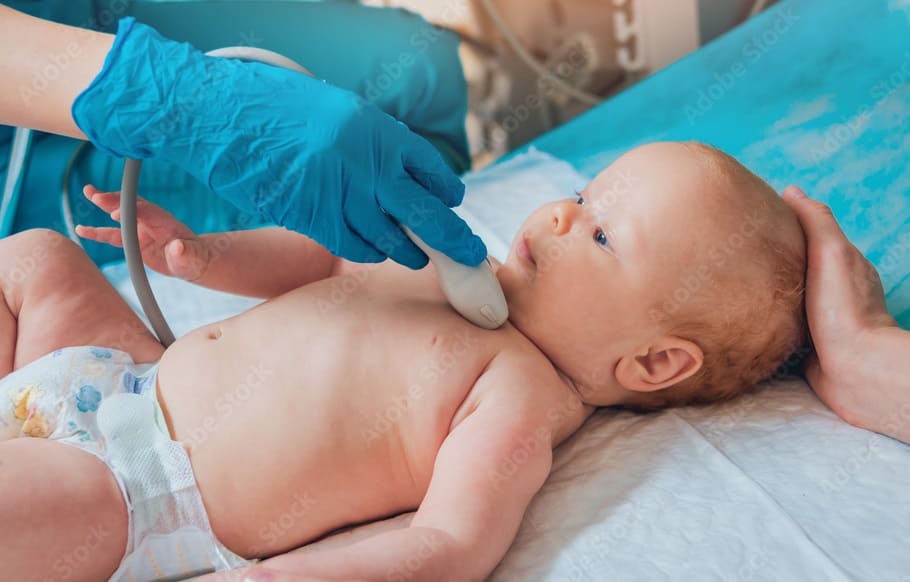As a parent, it’s natural to worry about your newborn’s health, and one condition that often goes undetected in the early days is thyroid problems. While thyroid issues are more commonly associated with adults, babies can also be born with thyroid disorders, most commonly congenital hypothyroidism. This condition can have significant effects on a baby’s growth and development if not caught early. In this post, we’ll explore whether newborns can have thyroid problems, the signs to look for, the causes behind these issues, and the treatment options available to ensure your little one thrives. Let’s dive into the details so you can better understand this important aspect of newborn health.
What is Congenital Hypothyroidism?
Congenital hypothyroidism (CH) is a condition where a baby is born with an underactive thyroid gland. The thyroid, a small butterfly-shaped gland in the neck, plays a critical role in metabolism, growth, and brain development. When it doesn’t produce enough thyroid hormones, the consequences can be significant, especially during early development.
Causes of Thyroid Problems in Newborns
- Underdeveloped or Absent Thyroid Gland: Some babies are born without a thyroid gland, or their gland is improperly formed.
- Genetic Mutations: Inherited conditions affecting thyroid hormone production or transport can lead to congenital hypothyroidism.
- Maternal Factors: If the mother has an iodine deficiency or untreated thyroid condition during pregnancy, it can affect the baby’s thyroid health.
Symptoms to Watch For in Newborns
The tricky part? Congenital hypothyroidism often shows no immediate symptoms at birth, making it crucial to detect through newborn screening. However, subtle signs may include:
- Prolonged jaundice
- Poor feeding and weight gain
- Lethargy or excessive sleepiness
- Constipation
- Puffy face or swollen tongue
Why Early Diagnosis Matters
Thyroid hormones are vital for brain development in the first few years of life. If untreated, hypothyroidism can lead to developmental delays, intellectual disabilities, and growth issues. Fortunately, with early detection and treatment, most children with congenital hypothyroidism can grow and develop normally.
Diagnosis and Treatment
Newborns in most countries undergo routine thyroid screening within the first week of life. If diagnosed, treatment typically involves daily thyroid hormone replacement therapy. This treatment is simple but must be closely monitored by healthcare professionals to ensure the baby gets the right dosage.
Can Children Have Other Thyroid Issues?
Apart from congenital hypothyroidism, older children may also develop thyroid disorders such as:
- Hashimoto’s Thyroiditis: An autoimmune condition causing hypothyroidism.
- Graves’ Disease: An autoimmune condition leading to hyperthyroidism (overactive thyroid).
Both conditions are less common in infancy but can occur later in childhood or adolescence.
What Experts Recommend
- Newborn Screening is Non-Negotiable: Early detection can prevent lifelong complications.
- Regular Pediatric Checkups: Growth patterns and developmental milestones can signal thyroid-related concerns.
- Balanced Maternal Nutrition: Adequate iodine intake during pregnancy supports the baby’s thyroid health.
Final Thoughts
Yes, children can have thyroid issues from birth, but early diagnosis and treatment can make all the difference. If you’re an expectant or new parent, ensure your baby undergoes thyroid screening. And remember, any concerns about your child’s growth or development should be discussed with your pediatrician.
Thyroid health might seem like a small detail, but it plays a huge role in ensuring your little one thrives. So, stay informed, stay proactive, and trust the experts to guide you on this journey.
Also Read:
